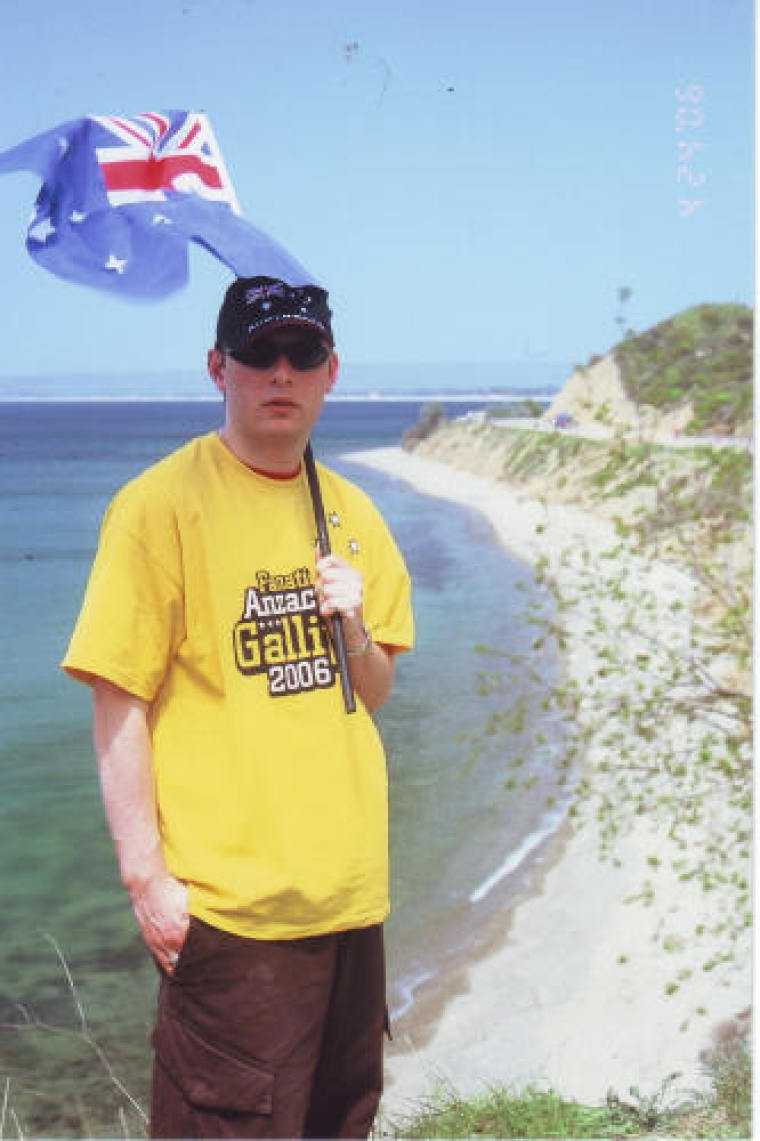
The story he told is not an isolated one but handcuffed by the bureaucracy of the 1973 arrangements between Britain and the European Community.
Australians without ancestry visa's (parents or grand-parents with British passports) or who are not officially sponsored, get a two year working visa and then home they go. For most young Australians this is their rite of passage. A two year stint in the old dart, working where they can, meeting other young Australians on the same jaunt and then it's time to get serious with life.
A number of the Tronson young'ns have trod this familiar and welcome path. Their grand mother was British, came out to Australia in 1933, sponsored by an uncle and aunt in old Blacktown, then a rural area on the western fringes of Sydney.
After a stint in rural NSW, around the Singleton area as a home nanny for the then farming stoctocracy, grand-ma T returned to Sydney and found work in a milliner's workshop (hat making) in North Sydney. There she met friends that lasted a life time (literally) and played hockey and cricket with them and when WWII came they all joined the Land Army.
To Batlow and Tumut they went working the land, driving tractors, picking fruit, planting crops and at war's end it was grand-ma T who was invited to give the talk on behalf of the Land Army girls in Batlow as their service came to an end.
Their grand-father Seymour T had established a dairy at Crediton (Eungella) west of Mackay on the great dividing range which supplied milk to Mackay and in the war years, they'd been signed up to provide milk to the USAAF base. After the way years he went on a working holiday "to find a wife" and they met in Batlow. His diary cane be read on line: bushorchestra.com
The rest is history. Seymour and Joan had three children, I was the second son, Delma and I married and had four children, and now we too are grand-parents. It was my task to communicate with the British Embassy in Canberra with my mother's documents including her birth certificate and thus secure the relevant Ancestry Visas for the children and subsequently for their cousins.
2003 to Britain
Our son relocated to Britain in 2003 and stayed there for seven years making good in the banking industry in Manchester winning platinum awards for selling bank products along with travelling throughout Europe and playing soccer for the Manchester Junior team which in 2008 was the only British team to win any European tournament.
But this is not the pathway for those many Australians who have chosen to make England their home and have found very satisfying employment but without the where-with-all to secure a sponsorship. Finally they are told to go home in no uncertain terms.
This is the very point Boris Johnson makes giving a real life example of such a situation in which the whole scenario is ludicrous to the point of a bureaucracy gone haywire.
Moreover as he stated it all goers back to 1973 where the legislation in effect has the Europeans are determining who can live and work in Britain.
And Boris Johnson is adamant. "We need to raise our eyes beyond Europe, forging and intensifying links with countries that are going to be growing in the decades ahead; countries that offer immense opportunities for British goods, people, services and capital. And you could not do better than by starting with Australia."
"It is time for Britain and Australia to set up a bilateral free labour mobility zone," Boris Johnson stated.
Australian Baptist roots are from Britain, not America and there are an enormous number of Australian Baptists who have done exchange pulpits – Australian – British - Baptist Churches over a hundred years. The paper work has been phenomenal. But how much better would it be for legislation whereupon a bilateral labour mobility zone would make the process so much simpler.
Dr Mark Tronson is a Baptist minister (retired) who served as the Australian cricket team chaplain for 17 years (2000 ret) and established Life After Cricket in 2001. He was recognised by the Olympic Ministry Medal in 2009 presented by Carl Lewis Olympian of the Century. He has written 24 books, and enjoys writing. He is married to Delma, with four adult children and grand-children.
Mark Tronson's archive of articles can be viewed at www.pressserviceinternational.org/mark-tronson.html
